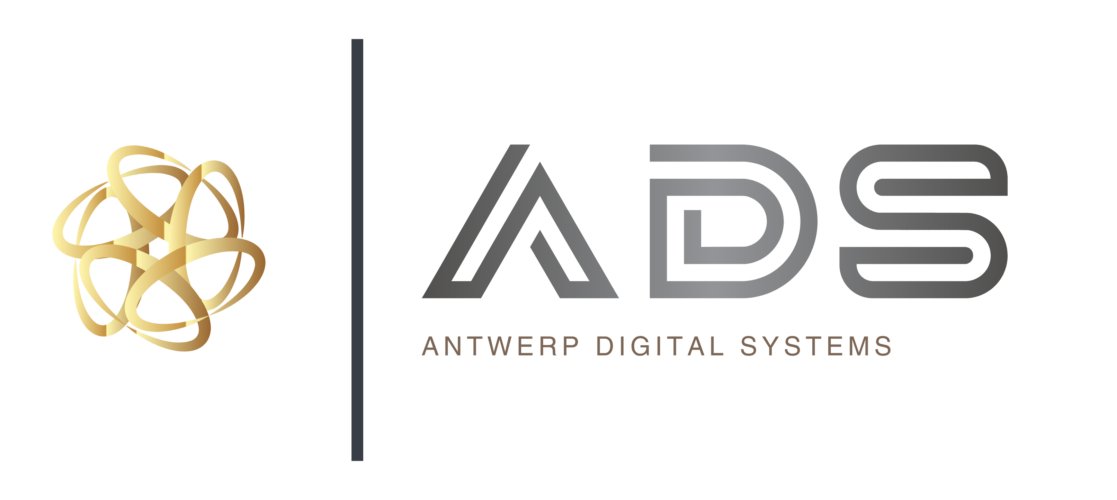Comprehensive CCTV Solutions for Warehouses
Securing Assets and Enhancing Efficiency
Warehouses are essential to supply chains, serving as hubs for storage, distribution, and inventory management. However, these facilities are often vulnerable to theft, vandalism, and operational inefficiencies. Installing CCTV solutions for warehouses is one of the most effective ways to safeguard assets, ensure employee safety, and optimize workflow. This article will explore the importance of CCTV in warehouse environments, the types of systems available, key features to look for, and how to select the right system for your warehouse.
The Importance of CCTV in Warehouse Security
Warehouse operations involve significant movement of goods, equipment, and personnel, making them susceptible to internal and external security threats. Whether it’s the threat of unauthorized access, theft by employees or outsiders, or accidents, CCTV systems play a crucial role in maintaining security. Below are some key reasons why CCTV is essential in warehouses:
Preventing Theft
Theft is a common concern for warehouses, where valuable goods and equipment are stored in large quantities. CCTV cameras act as a powerful deterrent against both internal and external theft. Visible cameras, strategically placed near entry points, loading docks, and storage areas, reduce the likelihood of employees or intruders attempting theft.
Monitoring Operations and Ensuring Efficiency
In addition to security, CCTV systems allow warehouse managers to monitor day-to-day operations. By overseeing employee performance, the handling of inventory, and workflow efficiency, managers can identify areas for improvement and optimize warehouse productivity.
Employee Safety and Accident Prevention
Warehouses can be hazardous environments due to the presence of heavy machinery, large equipment, and fast-paced activities. CCTV helps monitor safety protocols and compliance with regulations, identifying unsafe practices and preventing accidents. In the event of an accident, footage can be reviewed to understand what went wrong and make necessary changes to improve safety.
Surveillance of Large Areas
Warehouses are often expansive, with multiple rooms and levels, making it difficult for on-site security personnel to monitor every area effectively. CCTV systems offer comprehensive coverage of these vast spaces, ensuring that every corner of the warehouse is under surveillance. This helps to identify and respond to suspicious activities in real-time.
Legal and Compliance Issues
In the event of incidents such as theft, vandalism, or accidents, CCTV footage can serve as valuable evidence for insurance claims or legal disputes. It also helps in compliance with workplace safety regulations, as video records provide proof of adherence to safety guidelines and protocols.
Types of CCTV Systems for Warehouses
There are different types of CCTV systems available for warehouse environments, each with distinct features that make them suitable for specific needs. The right system for your warehouse will depend on the size of your facility, the specific risks you face, and the level of monitoring required.
Analog CCTV Systems
Analog CCTV systems are one of the oldest types of security cameras but are still used in many facilities due to their reliability and affordability. These systems use a network of cameras connected to a digital video recorder (DVR) that captures and stores footage. While they lack some of the advanced features of modern systems, they remain an effective option for small-to-medium-sized warehouses with basic surveillance needs.
IP (Internet Protocol) CCTV Systems
IP cameras are more advanced than analog systems, offering higher resolution footage, remote access, and the ability to transmit data over a network. This makes them ideal for larger warehouses or businesses that require real-time monitoring from off-site locations. IP systems often come with advanced features such as motion detection, facial recognition, and integration with other security systems like access control.
Wireless CCTV Systems
Wireless CCTV systems are flexible and easy to install because they don’t require extensive cabling. These systems are ideal for warehouses with large open spaces or where it’s difficult to run cables. Wireless systems transmit video footage to a cloud-based storage system or local server, making it accessible remotely.
PTZ (Pan-Tilt-Zoom) Cameras
PTZ cameras offer a wide range of motion, allowing operators to pan, tilt, and zoom in on specific areas of interest. These cameras are particularly useful in large warehouses where high visibility and flexibility are required. They can be programmed to track movement automatically, providing greater coverage in areas where movement is frequent, such as loading docks and entry points.
Thermal Imaging Cameras
Thermal cameras detect heat signatures and are particularly useful in environments where visibility is limited, such as low-light or dusty conditions. They are commonly used in warehouses that store sensitive or hazardous materials, as they can detect unusual heat patterns that could indicate potential fires or overheating equipment.Thermal cameras detect heat signatures and are particularly useful in environments where visibility is limited, such as low-light or dusty conditions. They are commonly used in warehouses that store sensitive or hazardous materials, as they can detect unusual heat patterns that could indicate potential fires or overheating equipment.
Key Features to Look for in Warehouse CCTV Solutions
When selecting a CCTV system for your warehouse, there are several key features to consider to ensure optimal security and operational efficiency:
High-Definition (HD) or 4K Resolution
High-resolution cameras are essential for capturing clear footage that can be used to identify individuals or monitor specific activities. HD and 4K cameras provide superior image quality, making it easier to see details, such as faces, license plates, or inventory labels, which is crucial in case of an investigation.
Night Vision and Low-Light Performance
Warehouses often operate 24/7, and security is particularly critical during nighttime hours. Cameras equipped with infrared (IR) night vision technology allow for clear footage even in low-light conditions, ensuring round-the-clock surveillance.
Wide-Angle Lenses and Zoom Capabilities
Warehouse spaces are typically large and require cameras with wide-angle lenses to cover more ground. Additionally, cameras with zoom capabilities are essential for focusing on specific areas, such as high-value inventory or restricted zones.
Motion Detection and Alerts
Advanced CCTV systems can include motion detection sensors that trigger alerts when unusual movement is detected. This feature minimizes the amount of footage that needs to be reviewed manually and allows for immediate action in response to potential security breaches.
Remote Monitoring and Mobile Access
Remote monitoring capabilities allow business owners and security personnel to view live footage or review recorded video from anywhere via smartphones, tablets, or computers. This is particularly useful for multi-site warehouses or when managers are off-site and need to keep an eye on operations.
Cloud-Based Storage
Storing surveillance footage in the cloud offers flexibility and scalability, allowing businesses to store and access video footage without the need for on-site servers. Cloud-based systems also provide an additional layer of security, as footage is stored off-site and cannot be tampered with locally.
Integration with Other Security Systems
For enhanced security, CCTV systems can be integrated with other security measures such as access control systems, alarm systems, and motion sensors. This creates a comprehensive security network, allowing for more effective management and response to security events.
How to Choose the Right CCTV System for Your Warehouse
Choosing the right CCTV system for your warehouse involves assessing your security needs, budget, and facility size. Here are some key steps to consider:
Conduct a Risk Assessment
Begin by identifying the specific security risks your warehouse faces. This could include theft, unauthorized access, workplace accidents, or vandalism. By understanding these risks, you can determine which areas require the most attention and which types of cameras are most suitable.
Determine Coverage Needs
Map out the areas of your warehouse that require surveillance. This typically includes entry and exit points, loading docks, storage areas, and employee workspaces. Depending on the layout and size of your facility, you may need different types of cameras to cover specific zones.
Consider Scalability
As your business grows, so will your security needs. Choose a system that can be easily scaled by adding more cameras or integrating with other security measures. IP and wireless systems are often more flexible and scalable, making them ideal for growing businesses.
Budget and Total Cost of Ownership
While the initial installation cost is an important consideration, it’s also essential to factor in the long-term costs of maintenance, data storage, and system upgrades. Cloud-based storage can offer long-term savings, while high-quality equipment may reduce the need for frequent repairs or replacements.
Professional Installation and Support
Ensure that the system is installed by experienced professionals who understand the unique security challenges of warehouse environments. Additionally, ongoing support and maintenance are crucial for keeping the system functioning optimally and addressing any technical issues that arise.
Have a project in mind?
Do not hesitate to say
Why Choose Us
Choosing our company for your IP CCTV installation ensures you receive top-notch service and cutting-edge technology. Our commitment to excellence and customer satisfaction sets us apart in the industry.

Expertise and Experience
Our team comprises seasoned professionals with extensive experience in IP CCTV installations. We stay abreast of the latest industry trends and technologies to provide the best solutions for our clients.
Customized Solutions
We understand that each client has unique security needs. Our tailored solutions ensure that your IP CCTV system is perfectly aligned with your specific requirements and budget.
Reliable Support
We pride ourselves on providing exceptional customer support. From initial consultation to ongoing maintenance, we are dedicated to ensuring your complete satisfaction.
Conclusion
Investing in CCTV solutions for warehouses is a proactive approach to protecting your assets, improving operational efficiency, and ensuring employee safety. With the wide range of options available, businesses can choose a system tailored to their specific needs, whether it’s a basic analog system for small warehouses or an advanced IP system with remote monitoring for larger facilities. By carefully selecting the right type of system, features, and installation service, businesses can create a robust security framework that not only deters criminal activity but also enhances the overall productivity and safety of the warehouse environment.

